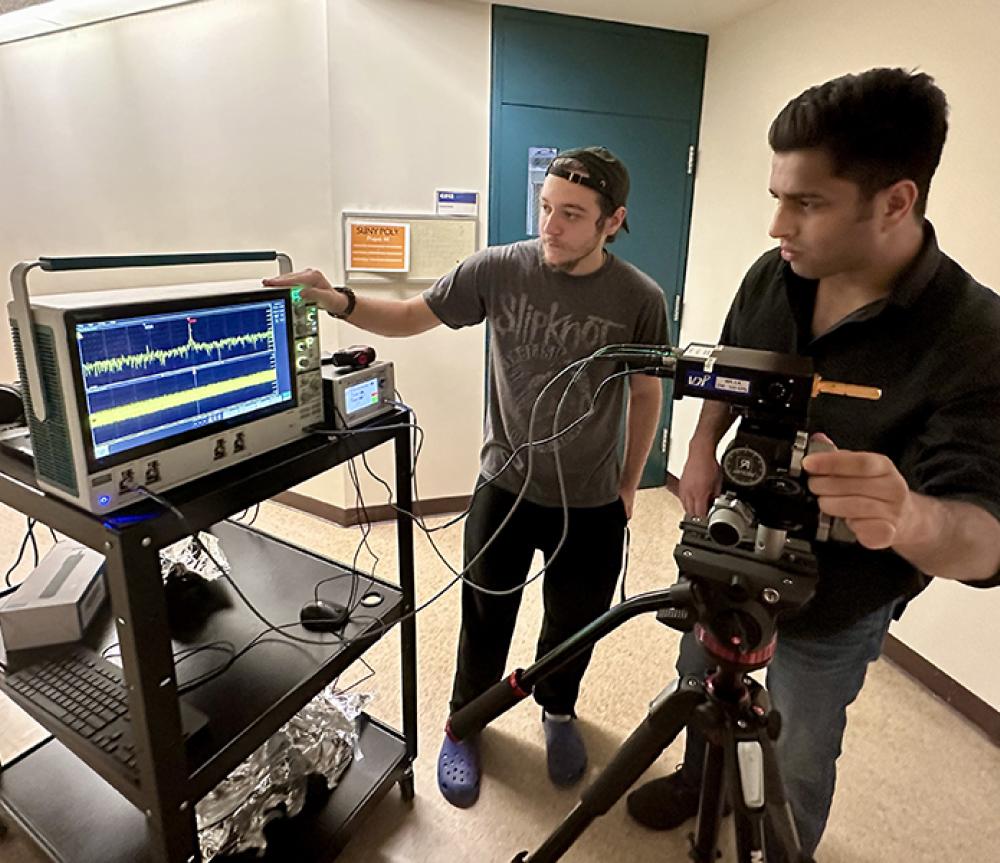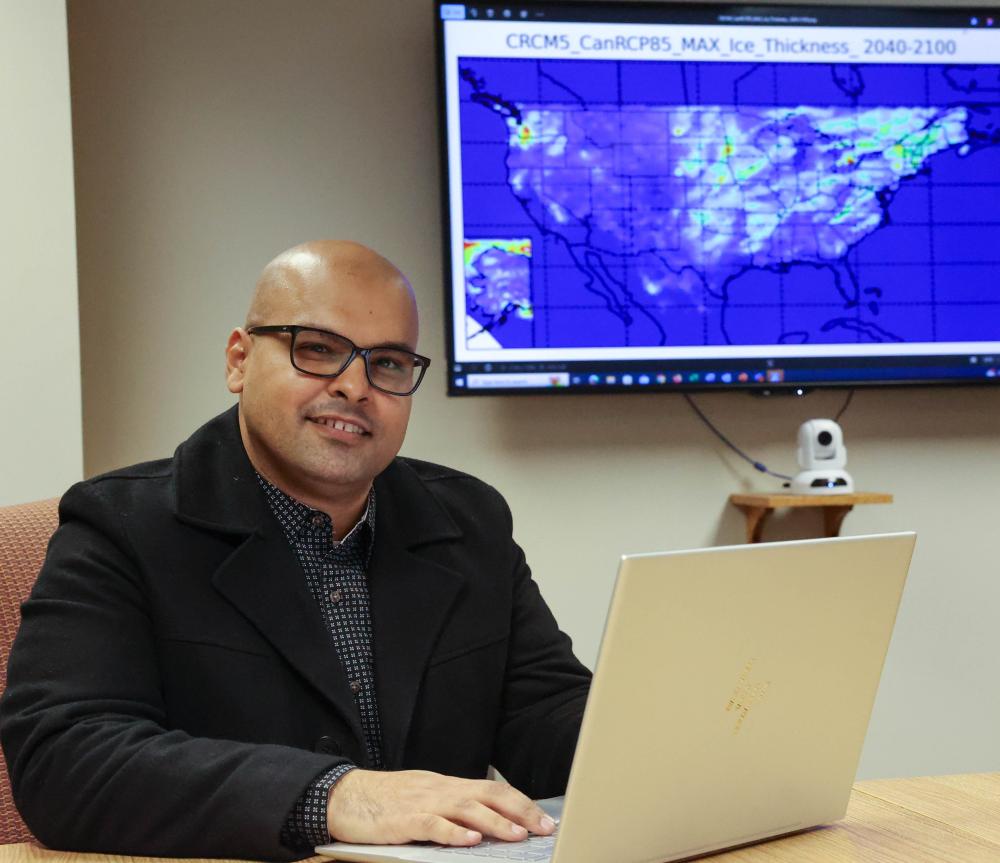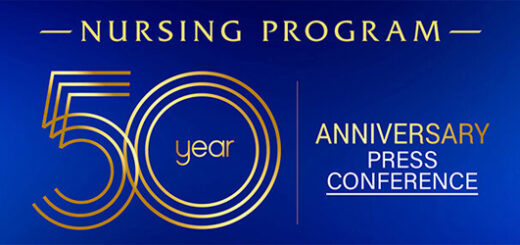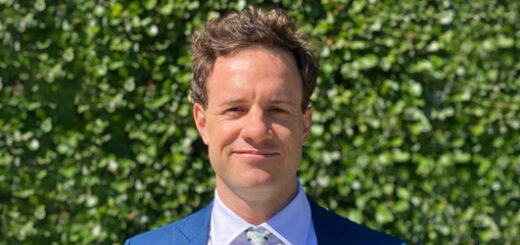SUNY Poly Engineering Faculty Secure Significant Grants for Pioneering Research
SUNY Poly is proud to announce that two of its distinguished engineering faculty members have been awarded substantial grants to advance groundbreaking research in their respective fields.
Dr. Arjun Singh’s Innovations in Wireless Communication

Dr. Arjun Singh, a leading professor of Electrical and Computer Engineering, has secured two grants totaling $150,000 from the Air Force Research Laboratory (AFRL) Mid-Atlantic HUB and the National Science Foundation (NSF). These funds will support his research in next-generation wireless communication technologies and the organization of a national workshop on cutting-edge wireless systems.
In collaboration with fellow SUNY Poly faculty member Dr. Priyangshu Sen, Dr. Singh received $100,000 from the AFRL Mid-Atlantic HUB Phase 1 to develop intelligent reflecting surfaces (IRS) operating at terahertz (THz) frequencies. This research aims to enhance the reliability of wireless communications in both industrial and defense sectors by addressing challenges such as low-power signal sources, high path losses, and signal blockage. The team plans to utilize large-aperture antennas and IRS, integrated with near-field electromagnetic techniques, to overcome these obstacles.
Additionally, Dr. Singh secured a $50,000 grant from the NSF to organize a national workshop at SUNY Poly. The conference will bring together top researchers to explore the future of wireless communication, focusing on how wavefront engineering techniques can unlock the potential of 6G and beyond. Discussions will include the integration of exotic wavefronts—such as Bessel, Airy, and vortex beams—into next-generation wireless networks to mitigate obstacles, enhance link robustness, and improve overall communication capacity.
Dr. Ahmed Abdelaal’s Research on Climate Change and Structural Design

Assistant Professor of Mechanical Engineering Technology, Dr. Ahmed Abdelaal, has been awarded $397,410 by the National Institute of Standards and Technology (NIST) to investigate the impacts of climate change on atmospheric icing and its implications for structural design standards. This project, titled “Climate Change Effects on Atmospheric Icing and Its Impact on Codes and Standards for Structural Design,” is a collaboration with scientists from the U.S. National Science Foundation National Center for Atmospheric Research (NSF NCAR).
The research will examine how climate change affects ice loads on buildings and infrastructure. As rising temperatures increase atmospheric moisture capacity, changes in precipitation intensity, frequency, and distribution could lead to more extreme freezing rain events, posing challenges for structural resilience. The project aims to incorporate future climate projections into structural design standards, ensuring that infrastructure built today can withstand evolving weather extremes.
Utilizing advanced climate modeling tools and data from the North American Coordinated Regional Climate Downscaling Experiment (NA-CORDEX), the team will analyze historical and projected freezing rain events from 1950 to 2100. The findings will contribute to the American Society of Civil Engineers’ (ASCE) efforts to update Standard 7: Minimum Design Loads and Associated Criteria for Buildings and Other Structures, including a new chapter addressing future environmental hazards in the context of a warming climate.
These significant grants underscore SUNY Poly’s commitment to advancing innovative research that addresses critical challenges in technology and environmental resilience.




